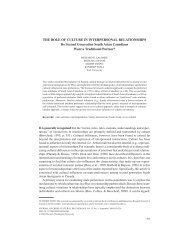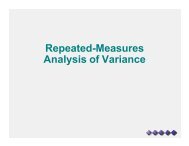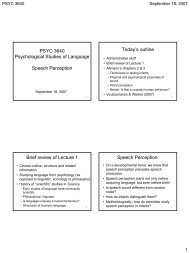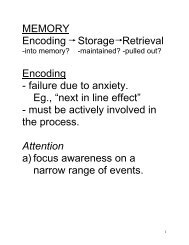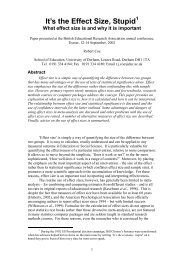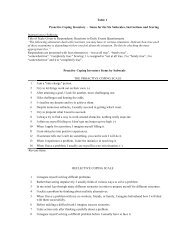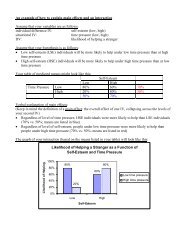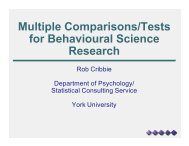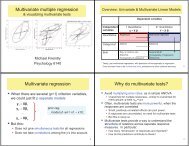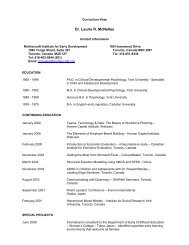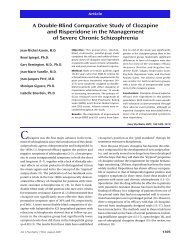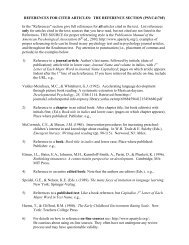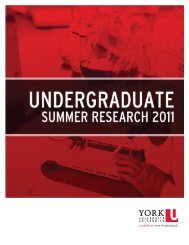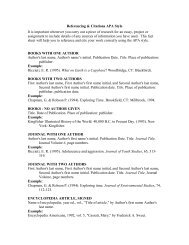The Drama of the Gifted Child (The Search for the True Self)
The Drama of the Gifted Child (The Search for the True Self)
The Drama of the Gifted Child (The Search for the True Self)
You also want an ePaper? Increase the reach of your titles
YUMPU automatically turns print PDFs into web optimized ePapers that Google loves.
jected a parental attitude <strong>of</strong> which <strong>the</strong>y have never been<br />
aware. <strong>The</strong> children <strong>of</strong> such parents find it particularly<br />
difficult to <strong>for</strong>mulate any reproach in <strong>the</strong>ir analysis.<br />
<strong>The</strong>n <strong>the</strong>re are <strong>the</strong> people who can be very friendly,<br />
perhaps a shade patronizing, but in whose presence one<br />
feels as if one were nothing. <strong>The</strong>y convey <strong>the</strong> feeling that<br />
<strong>the</strong>y are <strong>the</strong> only ones who exist, <strong>the</strong> only ones who have<br />
anything interesting or relevant to say. <strong>The</strong> o<strong>the</strong>rs can only<br />
stand <strong>the</strong>re and admire <strong>the</strong>m in fascination, or turn away in<br />
disappointment and sorrow about <strong>the</strong>ir own lack <strong>of</strong> worth,<br />
unable to express <strong>the</strong>mselves in <strong>the</strong>se persons' presence.<br />
<strong>The</strong>se people might be <strong>the</strong> children <strong>of</strong> grandiose parents,<br />
with whom <strong>the</strong>se children had no hope <strong>of</strong> rivalry, and so<br />
later, as adults, <strong>the</strong>y unconsciously pass on this atmosphere<br />
to those around <strong>the</strong>m.<br />
Now those people who, as children, were intellectually<br />
far beyond <strong>the</strong>ir parents and <strong>the</strong>re<strong>for</strong>e admired by <strong>the</strong>m,<br />
but so also had to solve <strong>the</strong>ir own problems alone, will give<br />
us quite a different impression. <strong>The</strong>se people will give us a<br />
feeling <strong>of</strong> <strong>the</strong>ir intellectual strength and will power, and<br />
<strong>the</strong>y also seem to demand that we, too, ought to fight <strong>of</strong>f<br />
any feeling <strong>of</strong> weakness with intellectual means. In <strong>the</strong>ir<br />
presence one feels one can't be recognized as a person with<br />
problems—just as <strong>the</strong>y and <strong>the</strong>ir problems had not been<br />
recognized by <strong>the</strong>ir parents, <strong>for</strong> whom <strong>the</strong>y always had to<br />
be strong.<br />
Keeping <strong>the</strong>se examples in mind, it is easy to see why<br />
some pr<strong>of</strong>essors, who are quite capable <strong>of</strong> expressing<br />
<strong>the</strong>mselves clearly, will use such complicated and convoluted<br />
language when <strong>the</strong>y present <strong>the</strong>ir ideas that <strong>the</strong> students<br />
can only acquire <strong>the</strong>m in a fog <strong>of</strong> anger and diligence—without<br />
being able to make much use <strong>of</strong> <strong>the</strong>m.<br />
<strong>The</strong>se students <strong>the</strong>n may well have <strong>the</strong> same sorts <strong>of</strong> feelings<br />
109



